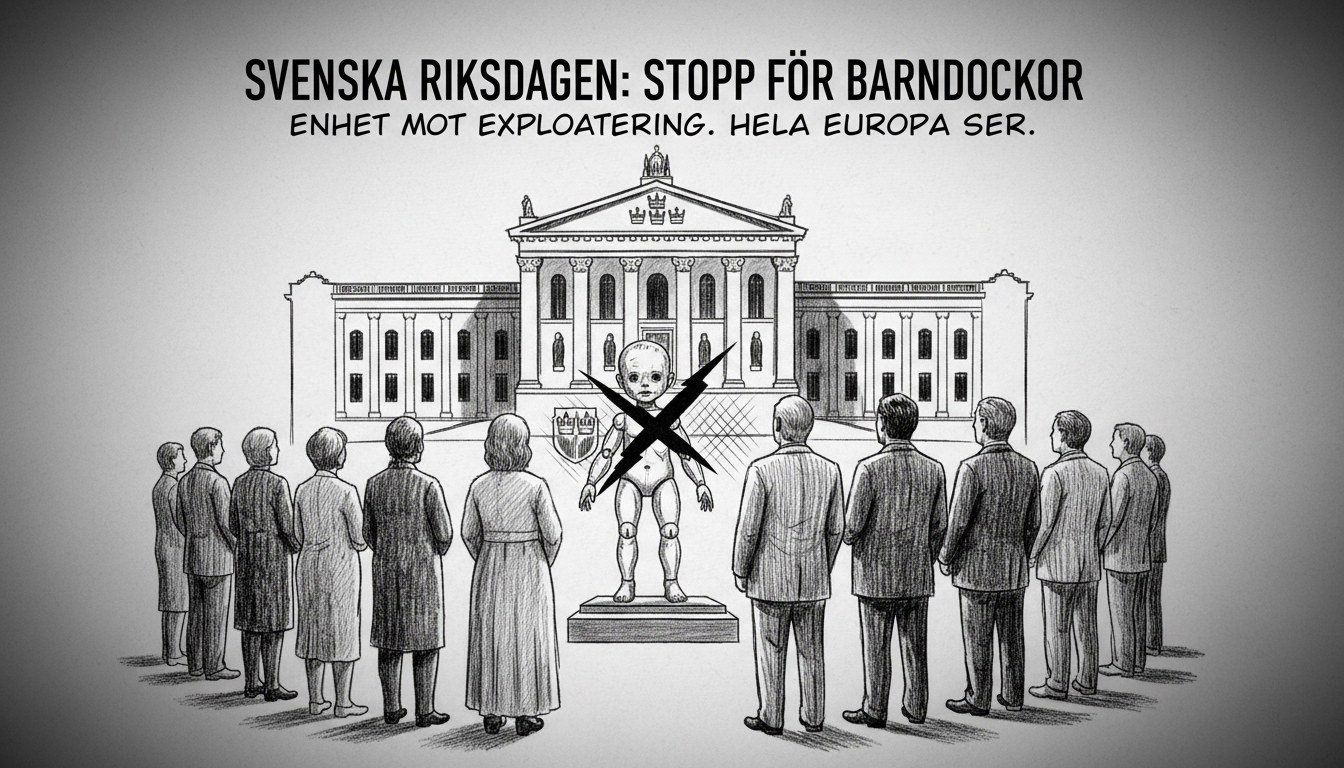Sweden's parliament is forcing the government to take immediate action against child-like sex dolls. A united justice committee has backed demands for stronger measures to block sales of these controversial products.
Lawmakers want internet giants to stop selling the child-like sex dolls online. They also seek to empower police to block internet traffic to websites promoting child sexual exploitation.
Social Democratic justice spokesperson Teresa Carvalho stated that parliament is now compelling the government to act. She emphasized the need to give police better tools for online investigations.
The political unity on this issue is notable in Sweden's often divided parliament. All major parties support the initiative, reflecting broad consensus about protecting children from sexual exploitation.
This development comes amid growing concern about online child exploitation across the Nordic region. Sweden has been strengthening its laws against child sexual abuse material in recent years.
The proposed measures would represent a significant expansion of police authority over internet content. Swedish authorities currently have limited power to block websites, making this a substantial policy shift.
Child protection advocates have long warned about the normalization of child sexual abuse through such products. They argue these dolls could encourage harmful behavior toward real children.
International research remains divided on whether such dolls prevent or encourage abuse. Some studies suggest they might provide an outlet for offenders, while others indicate they normalize harmful desires.
Sweden's approach contrasts with some other European countries. Germany has debated legalizing child-like sex dolls for therapeutic purposes, while Britain has banned them entirely.
The Swedish initiative reflects the country's strong commitment to children's rights. Sweden was the first nation to ban corporal punishment of children in 1979 and maintains robust child protection systems.
For international observers, this move demonstrates Sweden's proactive stance on digital child protection. The country often pioneers legislation that later spreads throughout the Nordic region and beyond.
Next steps involve formal government action and potential legislation. The united parliamentary pressure makes swift government response likely in the coming months.
The broader implications extend beyond Sweden's borders. As a leader in digital policy, Sweden's approach could influence European Union discussions about online child protection.
This development represents another step in Sweden's evolving approach to internet regulation. The country has traditionally favored internet freedom but is increasingly balancing this with protection measures.
What remains unclear is how effective website blocking would be in practice. Critics question whether technical measures can effectively prevent determined individuals from accessing such content.
The political unity suggests this issue transcends traditional left-right divisions in Swedish politics. Protecting children from sexual exploitation appears to be a rare universally shared priority.

